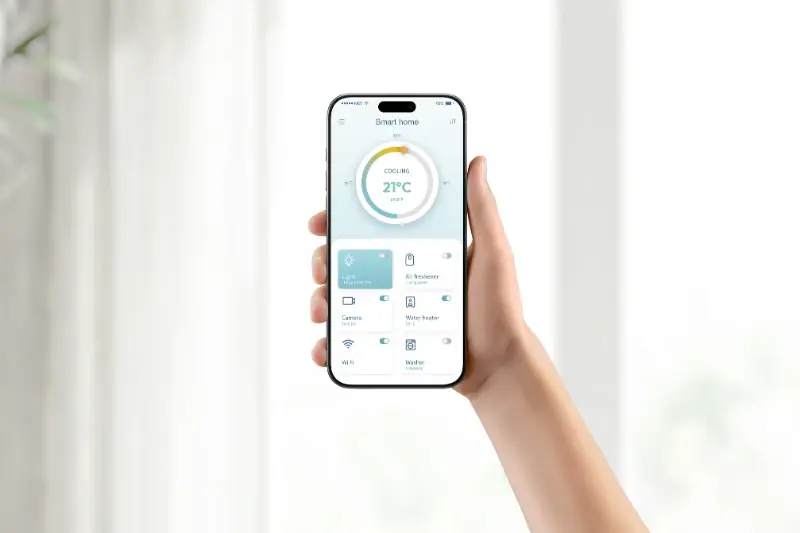The Best Smart Speakers: Apple’s HomePod vs Amazon Echo vs Google Home
4
min read
Personal digital assistants are becoming the newest wave of popular digital trends. These little A.I companions
are indeed
everything you could’ve asked for and more.
They’ll let you know the best route to take for work, whether you’ll need an umbrella or sunglasses in this unpredictable British weather and they’ll even tell you a Dad joke to help cheer you up
.
Nevertheless
, they act as an extended digital family member within your household.
As the HomePod, Amazon Echo and Google Home currently dominate the market, the question remains: which is the best speaker for you
?
Their Designs:
Despite these devices
relatively
doing the same thing as each other, it’s their design that sets them apart
.
The Amazon Echo’s design has seen various iterations of the product over the course of its launch. It currently remains
slightly
shorter and fatter compared to its predecessor. When you call its name, a ring on the top of the product lights up to let you know that it’s indeed listening and awaiting commands. There’re the standard volume buttons located on top as well as a voice muting option. The product comes in a space grey or white metallic/mesh looking finish.
The Google Home’s design is
certainly
unique compared to the others.
However
what this product does do well is that it blends in
seamlessly
with your home decor, and with an exceptional
additional
fee, you are able to pick up different coloured bases that either has a metallic or fabric finish
. There is an LED light found on the top that ensures you know that the device is listening.
The HomePod’s design makes it clear and obvious that it’s indeed an Apple created product.
Its metallic-covered exterior
perhaps
gives it away and needless to say, it keeps consistent with Apple’s usual brand design techniques – minimalism
. Siri can, for the first time,
be seen
in real-life as it appears when given commands on top of the product. The device comes in a black or white metallic finish.
Their Features:
One of the best USP’s about these digital geniuses is that they’re always learning. Their voice recognition is improving and can adapt
appropriately
to accents.
There’re a variety of skills each device can have installed to make them an all round better and cooler assistant
.
The Google Home takes clear advantage of it’s Google Assistant and, by having Google’s search engine available at its fingertips, nothing else can quite compete within the knowledge aspect
. The Echo’s microphone
however
is very efficient at picking up on sounds from a greater distance.
The HomePod
rightfully
uses Siri to its advantage and with Apple utilising its integration technology within the Apple ecosystem
, the speaker can’t
be flawed
for those hardcore Apple lovers out there
.
However
, the HomePods biggest drawback is exactly that – it
is designed
solely
to benefit those with anything Apple (which is something we’ll explore later on)
. Find out even more about the HomePod’s, Echo’s and Google Home’s features.
Their Prices:
The most important factor – and one I bet you haven’t overlooked – is the pricing of these products.
Apple’s HomePod claims the expensive spot by
initially
launching the device at £319 in the U.K. Both Google Home and Amazon Echo undercuts that price
significantly
, with the Echo priced at just £89.99 and the Google Home at £130
.
There’re also smaller versions of the 2 devices available, which helps lower the cost, both retailing at £50
.
Their Sound Qualities:
The Echo is a Bluetooth speaker, meaning it can stream music via Wi-Fi and
be controlled by
any device that supports Bluetooth audio streaming
. The device comes with a single 0.6 speaker and a 2.5 inch woofer.
The songs and volume can
be controlled
via voice commands, making it even easier to control your songs
.
Google Home is a Wi-Fi speaker that can stream music
directly
via the cloud.
Unfortunately, what sets this product apart from the Echo is that it doesn’t have Bluetooth support, so you must ensure that you use apps and services that can support Google Cast
.
The Google Home doesn’t sound
dramatically
better than the Echo, but the feature of Multi-room definitely adds a sense of clarity to the sound quality if you have more than one of the device
.
Apple’s HomePod offers Airplay from your Apple devices, or with apps/services that runs on cloud. Also, there’s a lack of Bluetooth with the device, which is to
be expected
.
It’s interesting to note that the speaker is compatible and exclusive to iPhone only and Apple Music users, which limits the device
in terms of
accessibility
.
So if you’re an Android user that has an active Apple Music membership, you’re indeed out of luck as the speaker even requires an Apple device running iOS 11 to set it up
. As the HomePod is much larger, it
undeniably
has a greater advantage over the other 2 in terms of sound with a 4 inch woofer.
Conclusion:
It’s difficult to say which comes out on top of all 3.
If audio is your necessity, the HomePod comes out as the clear and obvious winner despite being the most expensive
.
Visually
speaking, the Echo indeed has an intriguing design, most
notably
its lit up ring that awaits your commands
. It is sleek and fits very well with your home decor at a reasonable price. The same point can also
be argued
for the Google Home.
Furthermore, Echo is widest
in terms of
accessibility, compatibility and it’s skill sets that can
be downloaded
via the accompanied app
.
For now, I’d say the Echo takes the top spot
overall
with its appropriate price, stylish design and high sound quality, but time will tell as we get to see
just
how well Siri integrates with the HomePod
.
Share this
Subscribe To Our Blog
You May Also Like
These Related Stories
Smart Home Apps: How to Connect Your App to Everything


Smart Home Apps: How to Connect Your App to Everything
Dec 4, 2025
8
min read
The ‘Home Screen’: A Mobile Phones Real Estate


The ‘Home Screen’: A Mobile Phones Real Estate
Aug 23, 2017
2
min read
How Colour Psychology can be Applied to Mobile Apps


How Colour Psychology can be Applied to Mobile Apps
Aug 8, 2018
7
min read




